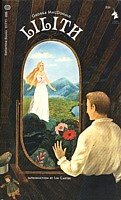
Fact or Opinion: "Stealing is wrong."
Fact or Opinion: "Belshazzar was a very poor ruler."
Fact or Opinion: "You are an unrighteous person."
As I was evaluating my students' results on their Accelerated Reader quizzes, I observed that quite a few struggle to discern fact from opinion. In an effort to ameliorate this condition, I set about immediately to define for them exactly what is "fact" and what is "opinion." No doubt, I failed miserably. Why, You ask? Because the issue is much more complicated than one would think at first. But, I'll let you be the judge...
I began by defining "opinion" as an evaluation, judgment, or decision about an event or thing. In short, it's a person's thoughts regarding some external reality. As you also know, opinions can vary from person to person and over time. They are considered not falsifiable and are therefore relative/subjective.
Then, I defined "fact" as that which is true (and in actuality--IS), that which can be proven scientifically, and that which has actually happened. A fact is objective and concrete.
After this, I addressed their common tendency to call an opinion a fact if that opinion is an obvious one that everyone or almost everyone shares. For example, students would likely say that the claim, "Sunsets are beautiful" is a fact because they can't think of anyone that would disagree. Commonly held opinions are not facts.
Then it dawned on me, the only person whose opinions become facts would be God Himself. That really set me thinking, and I'm still not done with the thought.When God says, "Stealing is wrong," it is a fact because He was the One who set this objective standard and declared this statement to be true.
"I the LORD speak righteousness, I declare things that are right." Isa. 45:19b
When God judges a man and finds him lacking, that man is, in reality,
lacking since he has fallen short of the divine standard. I think here of Belshazzar when God says in Daniel 5:27, "You have been weighed in the balances, and found wanting." Continuing in this vein, in Romans 3:23 Paul says, "For all have sinned and fall short of the glory of God."
Finally, I also think about Jesus being the Word, He who is not only the very expression of the Father's thoughts toward the Creation, but also the One who spoke the Creation into existence. And what was his opinion about what He had made?
"And God saw every thing that he had made, and, behold, [it was] very good. And the evening and the morning were the sixth day." Genesis 1:31
So what, you ask? There are several implications. For one, we cannot come up with our own system of morality as some men have tried to do. They have failed because we cannot express an opinion about right and wrong and have it become objective reality. We can make the claim that it is an opinion that everyone shares and call it a "fact," but it will only have the threat of human-dealt consequences behind it to give it weight. Man-made morality leads to totalitarianism of the worst sort, for without a standard to follow, there is no telling what heinous acts can be called "right" and what truly righteous acts will be labelled "wrong."
This post is becoming unwieldly, so I will end it here. I will write a second post responding to the dangerous claim that religious views are just opinions.
 Ivanhoe - Sir Walter Scott, B+
Ivanhoe - Sir Walter Scott, B+











